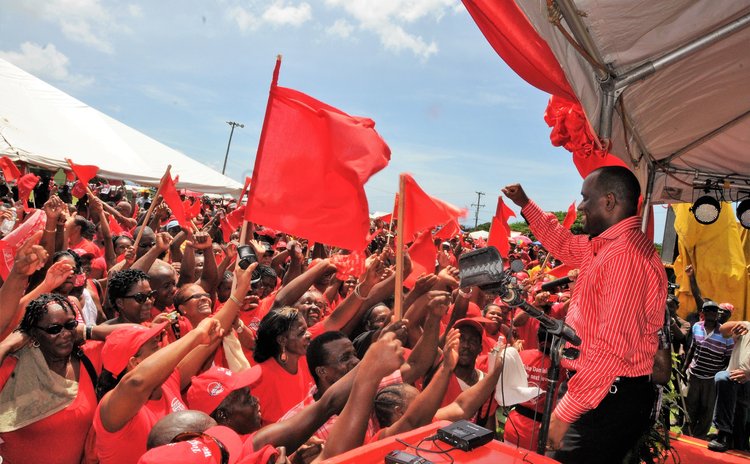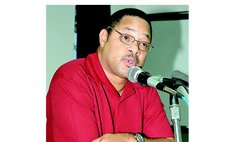Rumours of another nightmare: Snap elections in December 2024

Dominicans wonder if we will be heading to the polls yet again as December approaches. Rumours of another snap election, potentially before the year's end, cast a shadow over our national landscape, stirring anxieties about the frequency of elections and their toll on our economy, governance, and democracy.
Dominica has witnessed an unprecedented electoral schedule recently, with the possibility of three elections within five years. While snap elections are common in parliamentary systems, their repeated use raises questions. Are these elections truly about serving the people, or do they serve only the political interests of those in power? And what are the signs we should watch for if another snap election is, in fact, in the works?
Prime Minister Roosevelt Skerrit already enjoys a commanding 19-2 advantage in Parliament, making the rationale behind another snap election less obvious. However, there are possible motivations behind such a decision. One explanation may lie in the persistent demands for electoral reform. With growing public pressure for changes to the electoral process, Skerrit might be seeking to secure another mandate before these reforms can be enacted, ensuring the election takes place under current conditions that may benefit his party. Additionally, another election could potentially reinforce his position within the Dominica Labour Party, especially with the upcoming DLP delegates' November 10, 2024 conference. A fresh electoral mandate might solidify his influence and quell any internal challenges.
Signs are everywhere
Historically, there are clear signals to look for when a snap election is imminent. One is increased public spending or a wave of new projects and promises. If we see a sudden surge of road repairs, building refurbishments, or community assistance, we might question the timing—is it part of a genuine effort to develop our country or an attempt to sway voters before another ballot?
Another sign is the uptick in media appearances and public statements by the ruling party's leaders. A sudden increase in "good news" announcements, along with more visible appearances by ministers and the Prime Minister, often suggests an effort to boost visibility and reinforce public support. Behind the scenes, we may also see indications of the ruling party mobilising its machinery-organisational meetings, recruiting volunteers, and securing resources for another campaign.
The Constitution and the Prime Minister's right to call elections anytime
The Dominica Constitution and our Westminster system give the Prime Minister the flexibility to call elections at any time, a power intended to ensure responsive governance in times of national need. However, the framers of the Constitution did not anticipate that any Prime Minister would misuse this flexibility for political advantage. The repeated calls for snap elections show how easily this power can be wielded for strategic gain, raising the question: is it time to adopt fixed election dates, like in the United States of America, to prevent potential abuse?
However, when elections are held this frequently, there are consequences. First, the economic cost is significant. Every election requires vast resources, from administration and security to voter outreach, draining funds that could otherwise address pressing needs like healthcare, education, and infrastructure. For a small nation like Dominica, where resources are limited, diverting funds for frequent elections adds strain to an already tight budget.
Beyond the economic toll, repeated elections can breed public distrust. When elections occur more often than expected, it sends a message that governance takes a back seat to politicking. Projects can be delayed, policies left unfulfilled, and the continuity necessary for long-term progress gets disrupted. Our nation's stability and growth are better served by thoughtful, consistent leadership rather than perpetual campaign cycles.
Election fatigue
Frequent elections also risk alienating voters. Citizens are beginning to feel exhausted by the constant call to the polls, leading to disillusionment and fatigue. With every snap election, turnout could fall, resulting in a government that is less representative of the people's true voice. Voter apathy is a dangerous path; it corrodes the foundation of our democracy and leaves the door open to governance that lacks true accountability. Apathy could lead to a situation where the government is not truly reflective of the people's will, and decisions are made without the necessary public scrutiny and input.
If a snap election is indeed on the horizon, the opposition will face a difficult choice. Boycotting, as they did in 2022, sends a message of protest against an electoral system they believe is flawed. However, it also risks leaving their supporters without representation. Conversely, participating means engaging in an election cycle they view as manipulated but at least allowing them a place at the table. Either option has implications, but both underscore the potential for positive change through electoral reform. The time has come for transparent, predictable election dates and an end to the political advantage of surprise.
This potential snap election also offers the opposition forces another opportunity to show a united front, whether they boycott the election or contest it under a new umbrella. Dominica's opposition does not have much time, and a strong, cohesive strategy is not just important; it's essential to demonstrate strength and direction to voters. Whether it's a call for reform or a united campaign effort, this moment demands that they set aside differences and respond decisively.
The government and the people need to consider the long-term health of Dominica's democracy. An election should be about the country's future, not a tool for consolidating power. The ruling party must prioritise the country's stability over political gain.
The people need a break from the ballot box.




